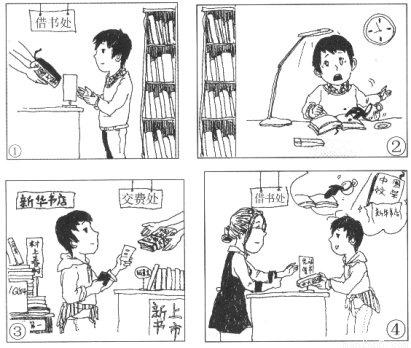题目内容
Children start out as natural scientists, eager to look into the world around them. Helping them enjoy science can be easy; there is no need for a lot of scientific terms or expensive lab equipment. You only have to share your children’s curiosity.
Firstly, listen to their questions. I once visited a classroom of seven–year-olds to talk about science as a job. The children asked me “textbook questions” about schooling, salary and whether I liked my job. When I finished answering, we sat facing one another in silence. Finally I said,” Now that we’ve finished with your lists, do you have questions of your own about science?”
After a long pause, a boy raised his hand, “have you ever seen a grasshopper (蚱蜢) eat? When I try eating leaves like that, I get a stomachache. Why?”
This began a set of questions that lasted nearly two hours.
Secondly, give them time to think. Studies over the past 30 years have shown that. After asking a question, adults typically wait only one second or less for an answer, no time for a child to think. When adults increase their “wait time” to three seconds or more, children give more logical, complete and creative answers.
Thirdly, watch your language. Once you have a child involved in a science discussion, don’t jump in with “That’s right” or “very good”. These words work well when it comes to encouraging good behavior. But in talking about science, quick praise can signal that discussion is over. Instead, keep things going by saying, “That’s interesting” or “I’d never thought of it that way before”, or coming up with more questions or ideas.
Never push a child to “think”. It doesn’t make sense; children are always thinking, without your telling them to. What’s more, this can turn a conversation into a performance. The child will try to find the answer you want, in as few words as possible, so that he will be a small target for your disagreement.
Lastly, show; don’t tell. Real-life impressions of nature are far more impressive than any lesson children can learn from a book or a television program. Let children look at their fingertips through a magnifying glass, and they’ll understand why you want them to wash before dinner. Rather than saying that water evaporates(蒸发), set a pot of water to boil and let them watch the water level drop.
1.According to the passage, children are natural scientist, and to raise their interest, the most important thing for adults to do is______.
A. to share the children’s curiosity
B. to let them see the world around
C. to explain difficult phrases about science
D. to supply the children with lab equipment
2.In the last sentence of the first paragraph, the word “list” could best be replaced by______.
A. any problems
B. questions from the textbooks
C. any questions
D. any number of questions
3.According to the passage, children can answer questions in a more logical, complete and creative way if adults______.
A. ask them to answer quickly
B. wait for one or two seconds after a question
C. wait at least for three seconds after a question
D. tell them to answer the next day
4.In which of the following paragraph(s) does the author tell us what to say to encourage children in a science discussion?
A. The second and third
B. The fifth
C. The fifth and sixth
D. The fourth and fifth
5.The author mentions all of the following techniques for adults to share with their children’s curiosity EXCEPT that adults should______.
A. encourage their children to ask questions of their own
B. offer their children chances to see things for themselves
C. be patient enough when their children answer questions
D. tell their children stories instead of reciting (背诵) facts
1.A
2.B
3.C
4.B
5.D
【解析】
试题分析:本文是一篇说明文,旨在告诉家长该如何让孩子保持对科学的好奇心并做出正确的引导。
1.
2.
3.
4.
Instead, keep things going by saying, “That’s interesting” or “I’d never thought of it that way before”, or coming up with more questions or ideas.(相反,让他继续并且说“那真有趣”或者“我之前都没有想到那种方法”),故选B.
5.该如何让孩子保持对科学的好奇心并做出正确的引导。首先讲要鼓励孩子问他们想到的关于科学的问题;其次要给孩子时间去单独思考,第三,要注意自己对于孩子的措辞,不能当他们一投入到科学讨论中就直接说一些鼓励的话,要耐心点将他们的思考与注意力一直集中在讨论上,让他们自己发掘出更多的东西,最后,don’t tell. Real-life impressions of nature are far more impressive than any lesson children can learn from a book or a television program.(不要讲故事。现实生活中的自然印象远不及孩子们在书本上或电视上所学的知识更加深刻)可知家长们应该让孩子们多了解事实而不是跟他们虚构一些自己理解的故事,故选D.
考点:考查说明文阅读

